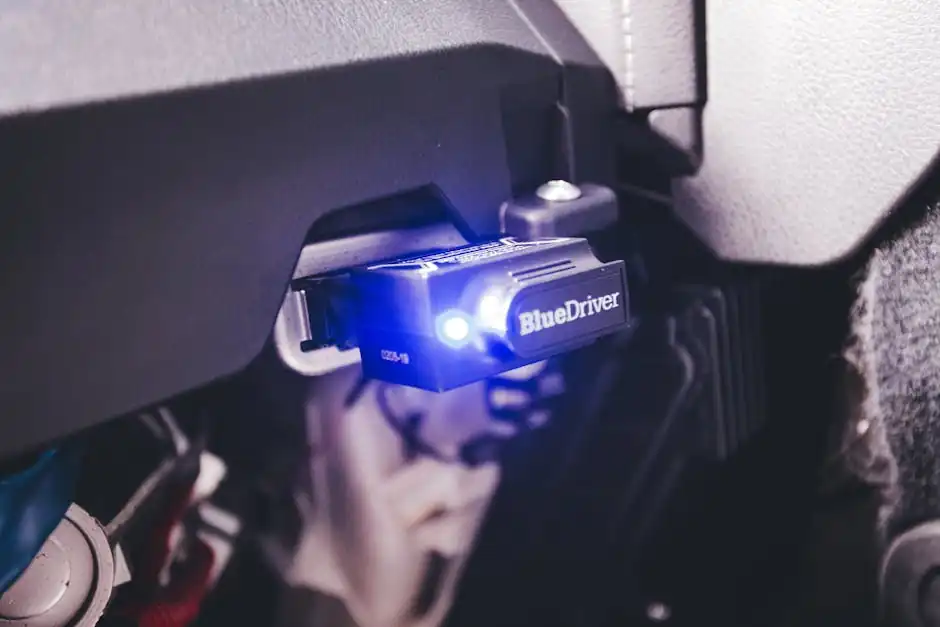Automotive Brand Differentiation: Standing Out in a Crowded Market

In a world where automotive brands seem to be multiplying faster than rabbits, it's crucial for companies to find a way to stand out from the pack. Brand differentiation is the name of the game, and in this post, we'll explore how automotive companies can set themselves apart in a crowded market. Buckle up, because we're about to take a deep dive into what makes some brands shine brighter than others.
Understanding Brand Differentiation in the Automotive Industry

In a crowded market like the automotive industry, it is crucial for brands to differentiate themselves from their competitors in order to stand out and attract customers. Brand differentiation refers to the unique characteristics and qualities that set one brand apart from another. This can include factors such as design, technology, performance, pricing, customer service, and brand image.
What Sets Brands Apart
-
Design: A brand's design aesthetic can play a significant role in setting it apart from competitors. Whether it's sleek and modern or rugged and durable, design can be a key differentiator for automotive brands.
-
Technology: Innovation in technology, such as advanced safety features, connectivity options, and autonomous driving capabilities, can help a brand distinguish itself as a leader in the industry.
-
Performance: Superior performance metrics like speed, acceleration, handling, and fuel efficiency can be a major selling point for automotive brands looking to differentiate themselves.
-
Pricing: Competitive pricing strategies can also help brands stand out in the market. Whether offering luxury vehicles at premium prices or budget-friendly options with great value, pricing plays a crucial role in brand positioning.
-
Customer Service: Exceptional customer service experiences can create loyal customers who choose one brand over another based on the level of care and support they receive.
-
Brand Image: The overall perception of a brand by consumers can be influenced by factors such as marketing campaigns, sponsorships, endorsements, and reputation within the industry.
The Impact of Unique Selling Propositions
A unique selling proposition (USP) is a specific feature or benefit that sets a product or service apart from its competitors. In the automotive industry, having a strong USP can be instrumental in attracting customers and building brand loyalty. By clearly communicating what makes their vehicles special or different from others on the market, automotive brands can create a compelling reason for consumers to choose them over competitors.
"Having a clear understanding of what sets your brand apart from others in the automotive industry is essential for success. By leveraging unique design elements, innovative technology features, superior performance metrics, competitive pricing strategies, exceptional customer service experiences, and cultivating a positive brand image through effective marketing efforts – brands can effectively differentiate themselves and stand out in this highly competitive market."
Core Elements of Automotive Branding

Design and Innovation
In the competitive automotive market, design and innovation play a crucial role in differentiating brands. Distinctive design elements can help a brand stand out from the crowd and create a lasting impression on consumers. Whether it's sleek lines, bold colors, or unique features, a well-designed vehicle can capture the attention of potential buyers.
Innovation is another key aspect of automotive branding. Brands that consistently push the boundaries of technology and engineering are more likely to attract customers looking for cutting-edge products. From electric vehicles to autonomous driving capabilities, innovation can set a brand apart in a crowded market.
Emotional Connection and Brand Loyalty
Building an emotional connection with consumers is essential for creating brand loyalty in the automotive industry. Emotional branding strategies that tap into consumers' desires, aspirations, and values can help forge strong connections between customers and brands. Whether it's nostalgia for classic models or excitement for future advancements, emotions can drive consumer preferences in the automotive market.
Brand loyalty is crucial for long-term success in the automotive industry. When customers feel connected to a brand on an emotional level, they are more likely to remain loyal and advocate for the brand to others. By fostering relationships with customers through exceptional service, personalized experiences, and consistent messaging, automotive brands can cultivate loyal followings that withstand market fluctuations.
Marketing Strategies for Distinctive Branding
In today's competitive automotive market, it is essential for brands to differentiate themselves from the competition in order to stand out and attract consumers. Here are some key marketing strategies that can help automotive brands achieve distinctive branding:
Leveraging Digital Media
In the digital age, having a strong online presence is crucial for automotive brands looking to differentiate themselves. Utilizing digital media platforms such as social media, websites, and online advertising can help brands reach a wider audience and engage with consumers in a more personalized way.
Key Points:
- Develop a comprehensive digital marketing strategy that includes social media marketing, search engine optimization (SEO), and online advertising.
- Create engaging content that resonates with your target audience and showcases the unique aspects of your brand.
- Utilize data analytics to track the effectiveness of your digital marketing efforts and make adjustments as needed.
Storytelling and Consumer Engagement
One effective way for automotive brands to differentiate themselves is through storytelling. By crafting a compelling brand narrative that resonates with consumers, brands can create emotional connections and build loyalty among their customer base.
Key Points:
- Develop a brand story that highlights the history, values, and mission of your company.
- Use storytelling techniques in your marketing materials, such as videos, blog posts, and social media posts.
- Engage with consumers on a personal level by responding to comments, hosting contests or giveaways, and soliciting feedback.
By leveraging digital media and incorporating storytelling into their marketing strategies, automotive brands can create distinctive branding that sets them apart from competitors in the crowded market.
Case Studies of Successful Automotive Brands
How Tesla Redefined Electric Cars
Tesla, led by visionary entrepreneur Elon Musk, has successfully differentiated itself in the automotive market by redefining electric cars. The company's focus on innovation, cutting-edge technology, and sustainability has set it apart from traditional automakers. Tesla's sleek designs, high-performance capabilities, and commitment to environmental responsibility have resonated with consumers looking for a premium electric vehicle experience.
One key aspect of Tesla's brand differentiation is its direct-to-consumer sales model. By bypassing traditional dealerships and selling directly to customers through its website and showrooms, Tesla has been able to control the entire customer experience and build a loyal fan base.
Another factor that sets Tesla apart is its investment in autonomous driving technology. The company's Autopilot system and future plans for fully autonomous vehicles have positioned Tesla as a leader in the development of self-driving cars.
BMW's Approach to Luxury and Performance
BMW has long been known for its emphasis on luxury and performance in the automotive market. The German automaker has successfully differentiated itself by combining cutting-edge technology with a focus on driver experience.
One key aspect of BMW's brand differentiation is its "Ultimate Driving Machine" tagline, which emphasizes the brand's commitment to delivering a superior driving experience. BMW vehicles are designed to provide both luxury and performance, appealing to drivers who value both style and speed.
BMW has also differentiated itself through its innovative use of materials and design elements. The company's use of lightweight materials like carbon fiber reinforced plastic (CFRP) in its vehicles helps improve performance while reducing fuel consumption.
Overall, BMW's approach to luxury and performance has allowed the brand to stand out in a crowded market by appealing to drivers who seek a balance between style, speed, and sophistication.
Future Trends in Automotive Brand Differentiation
Technology Integration and User Experience
In today's rapidly evolving automotive market, technology integration and user experience have become key differentiators for automotive brands. With the rise of electric vehicles, autonomous driving features, and connected car technologies, consumers are increasingly looking for brands that offer cutting-edge technology solutions.
Key Points:
- Seamless integration of technology into the driving experience
- Focus on user-friendly interfaces and intuitive controls
- Personalization options for a tailored driving experience
Sustainability as a Brand Pillar
As environmental concerns continue to grow, sustainability has emerged as a crucial brand pillar for automotive companies. Consumers are becoming more conscious of the environmental impact of their vehicles and are seeking out brands that prioritize sustainability in their manufacturing processes and product offerings.
Key Points:
- Development of eco-friendly vehicles with reduced carbon emissions
- Use of recycled materials in vehicle production
- Commitment to sustainable practices throughout the supply chain
Conclusion
As the automotive industry continues to evolve at breakneck speed, brand differentiation will become increasingly important for companies looking to carve out their own niche. By focusing on design, innovation, emotional connection, and effective marketing strategies, automotive brands can ensure they stay ahead of the curve and remain relevant in an ever-changing landscape. So rev up those engines and get ready to leave your competition in the dust!